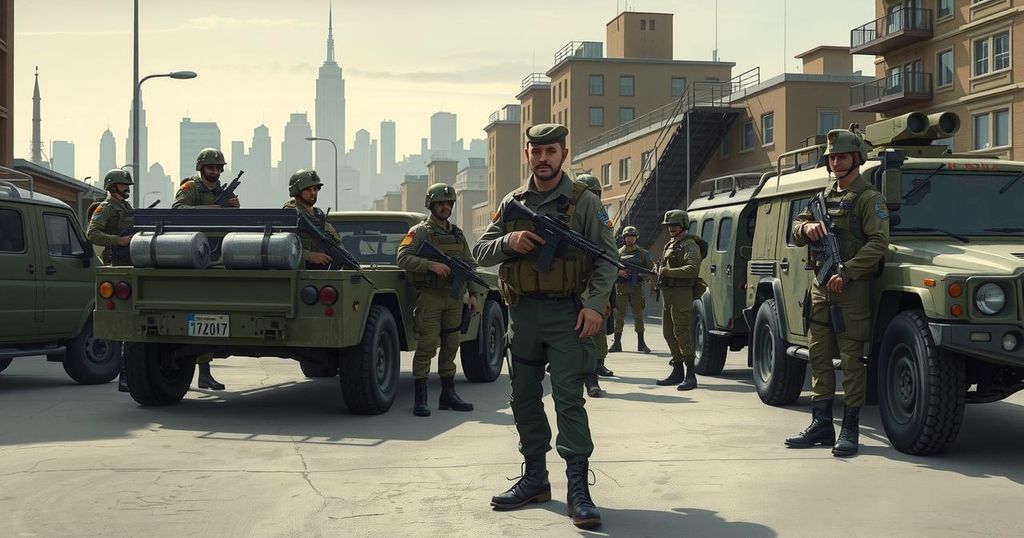Uganda has deployed its special forces to Juba to assist President Kiir amid escalating tensions with opposition leaders. General Muhoozi Kainerugaba confirmed the operation and stated Uganda’s commitment to defending Kiir’s government. This comes as security deteriorates in South Sudan, and regional responses, including an IGAD summit and the evacuation of U.S. diplomatic staff, signify growing concerns about the unfolding crisis and the fragile peace agreement.
Uganda has deployed special forces, known as the Uganda People’s Defence Forces (UPDF), to Juba, the capital of South Sudan, in an effort to secure the city and support President Salva Kiir’s government. This announcement was made by General Muhoozi Kainerugaba, the Chief of Defence Forces and Senior Presidential Advisor for Special Operations, via social media, where he confirmed the commencement of Operation ‘Mlinzi wa Kimya’ (Silent Guardian).
General Kainerugaba emphasized Uganda’s commitment to defending President Kiir’s administration, asserting that any aggression against Kiir would equate to a declaration of war on Uganda. He stated, “We shall protect the entire territory of South Sudan like it was our own,” underlining Uganda’s firm position on this issue.
Despite the deployment, the South Sudanese government has not yet published an official statement regarding Uganda’s involvement. Recent tensions between President Kiir and his deputy, Riek Machar, have raised alarm over the fragile 2018 peace agreement which may be on the verge of collapse.
In the previous week, the situation worsened when security forces detained two ministers and the deputy chief of the army, who are allies of Machar, prompting claims from the opposition of a significant breach of peace accords. Notably, significant clashes occurred in Upper Nile State involving government forces and a militia group associated with Machar, known as the White Army.
As unrest escalated, an incident involving a UN helicopter, which was attacked while evacuating South Sudanese soldiers, resulted in fatalities, including a crew member and an SSPDF commander. This has raised international and regional concerns about the ongoing violence.
In response, the Intergovernmental Authority on Development (IGAD) announced they would hold a virtual summit on March 12, 2025, to address the crisis. They reaffirmed their dedication to fostering dialogue and promoting peace in South Sudan. Concurrently, the United States has ordered non-emergency diplomatic staff to evacuate due to escalating violence and an increase in civilian armament.
South Sudan has faced a tumultuous history since gaining independence in 2011, with a civil war erupting in 2013 following a power struggle between Kiir and Machar. Although the 2018 Revitalized Peace Agreement halted major hostilities, many critical implementation points remain unfulfilled, exacerbating existing tensions among the factions.
In summary, the recent deployment of Ugandan special forces to South Sudan underscores Uganda’s commitment to supporting President Kiir’s government amidst rising tensions with opposition leaders. The deteriorating security conditions have prompted international concerns and calls for dialogue, highlighting the fragility of the peace agreement in the region amidst a history plagued by conflict. The need for a unified approach to restore stability in South Sudan remains imperative.
Original Source: softpower.ug




